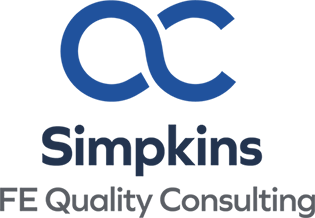
Unveiling the Inspection Process: Ofsted's Evaluation of Skills Bootcamps vs. Apprenticeship Provision
In the ever-evolving landscape of vocational education, Skills Bootcamps have emerged as an innovative approach to upskilling and reskilling the workforce. As these intensive training programs gain traction, it is crucial to understand how they are evaluated to ensure quality and effectiveness. In the United Kingdom, the Office for Standards in Education, Children’s Services and Skills (Ofsted) plays a vital role in inspecting and monitoring educational provisions. In this blog post, we will delve into the inspection process of Skills Bootcamps by Ofsted and explore the main differences between their evaluation and that of apprenticeship provision.
Ofsted’s Role in Skills Bootcamp Inspection:

Ofsted’s responsibility is to maintain high educational standards across a range of learning institutions, including Skills Bootcamps. Recognising the value of these innovative programs, Ofsted has adapted its inspection framework to suit the unique nature of Skills Bootcamp provision. The key objective of Ofsted’s inspection process is to assess whether Skills Bootcamps deliver quality training, provide effective support to learners, and ultimately meet the needs of employers and individuals seeking to enhance their skills.
Distinctive Features of Skills Bootcamp Inspection:

- Agile and Collaborative Approach: Ofsted recognises that Skills Bootcamps are often delivered by partnerships between employers, training providers, and other organisations. Consequently, their inspection approach focuses on collaboration, actively engaging with stakeholders, and promoting shared responsibility for quality improvement.
- Emphasis on Learner Outcomes: While recognising the importance of curriculum design and delivery, Ofsted places a strong emphasis on the outcomes achieved by learners. They assess the effectiveness of Skills Bootcamps in equipping individuals with the skills and knowledge required by employers and whether they lead to sustainable employment or progression opportunities.
- Evaluation of Employer Engagement: Ofsted recognises that successful Skills Bootcamps require strong employer engagement. Inspectors evaluate the extent to which employers are actively involved in designing curricula, providing work-based learning opportunities, and contributing to the overall quality of the program.
- Focus on Widening Participation and Social Mobility: In addition to quality assurance, Ofsted examines whether Skills Bootcamps contribute to social mobility and provide opportunities for individuals from underrepresented backgrounds. They evaluate the accessibility, inclusivity, and effectiveness of outreach efforts to ensure that these programs are accessible to a diverse range of learners.
Find a Skills Bootcamp by clicking here
Contrasting Approaches: Skills Bootcamps vs. Apprenticeship Provision:
While both Skills Bootcamps and apprenticeships aim to bridge the skills gap, there are notable differences in their inspection processes:
- Flexibility vs. Structured Learning: Skills Bootcamps typically offer flexible, short-term training programs, while apprenticeships follow a structured long-term approach. Consequently, Ofsted’s inspection of apprenticeship provision focuses on assessing the progression, monitoring, and quality of apprentices’ learning journeys, whereas Skills Bootcamp inspections prioritise immediate impact and learner outcomes.
- Collaboration vs. Individual Workplace Assessment: Skills Bootcamps emphasise collaboration among employers, training providers, and learners, whereas apprenticeships involve a more individualised approach with workplace assessment. Ofsted’s inspection of apprenticeships scrutinises the quality of on and off-the-job training, employer support, and the overall effectiveness of the apprentice’s learning experience.
In conclusion, Ofsted plays a vital role in inspecting and evaluating Skills Bootcamps, ensuring that they meet the necessary standards and deliver tangible results. Their inspection framework acknowledges the unique nature of Skills Bootcamp provision and focuses on learner outcomes, collaboration with employers, and promoting social mobility. By adapting their approach to suit the characteristics of Skills Bootcamps, Ofsted ensures that these programs are held to the same high standards as other educational provisions, fostering quality, and supporting the continuous improvement of vocational training.
As Skills Bootcamps continue to evolve and reshape the landscape of vocational education, it is essential for stakeholders to understand the inspection process and the distinct differences between Skills Bootcamps and apprenticeship provision. By staying informed, individuals, employers, and training providers can make informed decisions, choose the right pathway for skills development, and contribute to a skilled and adaptable workforce in the ever-changing world of work.
Remember, Skills Bootcamps are a powerful tool for individuals seeking to enhance their skills, for employers striving to address skill shortages, and for the overall economic growth of the nation. By embracing quality assurance through inspections, we can ensure that Skills Bootcamps continue to deliver on their promise of rapid upskilling, employment opportunities, and sustainable career progression.
So, how can I help?

As a further education quality consultant, my role is to support businesses with their Skills Bootcamp provision and ensuring their readiness for Ofsted inspections. Here are some ways I can assist your business in these areas:
- Quality Assurance Systems: Help businesses establish robust quality assurance systems specific to Skills Bootcamp provision. This includes developing policies, procedures, and documentation that align with Ofsted’s expectations. Work closely with you to design a quality framework that ensures compliance, effective delivery, and continuous improvement.
- Compliance Guidance: Provide guidance on the regulatory requirements and standards set by Ofsted. Help businesses understand and implement the necessary procedures to meet these standards, including learner recruitment, assessment, and achievement processes. Review documentation and ensure they align with Ofsted’s guidelines.
- Inspection Readiness Training: Conduct workshops and training sessions for you to prepare for Ofsted inspections. Train staff on what to expect during inspections, how to demonstrate evidence of quality provision, and how to effectively engage with Ofsted inspectors. Equip businesses with the knowledge and skills needed to showcase their strengths and address areas of improvement during inspections.
- Self-Assessment and Improvement Planning: Assist you in conducting self-assessments to evaluate their own performance against Ofsted’s criteria. Guide you in identifying strengths, weaknesses, and areas for improvement. Collaborate with you to develop comprehensive improvement plans that address any identified gaps and ensure they are on track to meet and exceed Ofsted’s expectations.
- Performance Data Analysis: Analyse performance data of Skills Bootcamps to identify trends, patterns, and areas of improvement. Help businesses interpret and utilise this data effectively to drive performance enhancements and evidence the impact of their provision during inspections.
- Curriculum Development and Enhancement: Work with you to develop and enhance your curriculum design and delivery strategies. Ensure alignment with industry needs, clear learning outcomes, and effective teaching methodologies. Assist in integrating employer engagement, work-based learning opportunities, and effective assessment strategies into the curriculum.
- Stakeholder Engagement: Support you in building effective partnerships with employers, training providers, and other stakeholders. Encourage collaboration and shared responsibility for quality improvement. Help you establish mechanisms for gathering and incorporating feedback from learners, employers, and other stakeholders to enhance your provision.
- Continuous Professional Development (CPD): Advise you on implementing effective CPD programs for your staff involved in Skills Bootcamp provision. Ensure that staff are up to date with the latest pedagogical practices, industry requirements, and regulatory changes. Help you foster a culture of continuous improvement and professional development.
If you require support across any of these areas, please complete an enquiry form and let’s discuss your requirements.





